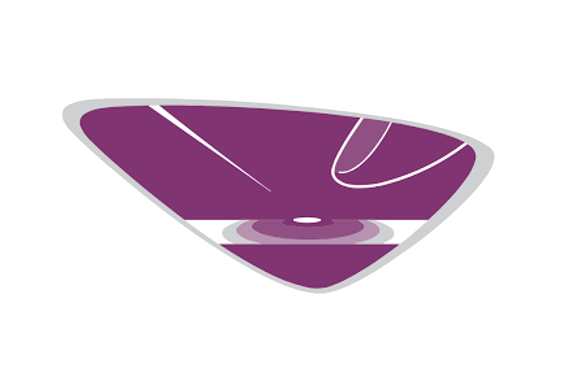Tips for Recording Reserve Transactions

Instead, Reserve expenses should be charged directly against the Reserve Fund balance in the Equity section of your Balance Sheet. Your gross maintenance fee income normally includes a contribution to Reserves, but this portion of the income is not available to pay your operating expenses like Electricity, Insurance, etc. Therefore, you must take it out of your Income/Expense section of your General Ledger so it does not affect the operating income or Expenses for the current year. Therefore, a reserve “fund” should be set up for each of these major assets the community is responsible for.
Special Assessment Fees vs. Reserve Fund Contributions for HOAs?
Our sample HOA, previously having a relaxed start, suddenly faced a roof replacement in the initial year. This unexpected expense meant they had to navigate a whopping $100,000 special assessment. For example, let’s consider an association that initially requires a $4,990 monthly transfer for full funding. But with a weaker starting point, say from 12% funded, that amount spikes to $5,610 monthly. The same expenses loom, but now the association has to play catch-up, with owners bearing the burden. Based on national statistics, associations closer to 0% funding are at a higher risk of special assessment.
Best practices for using your Reserve Funds
Some states require associations to maintain a reserve fund by law. Most of the mortgage loans on condos are underwritten by the Federal Housing Administration. The FHA requires that a minimum of 10% of the association’s budget be designated for the reserves.
Financial Reporting

Now income is recorded, and any reserves are isolated on the balance sheet as they should be. There are many differing views on this because the Reserve Analysis is a forecasting tool rather than an exact science. Some communities budget the full 100% forecasted replacement cost for each asset, while others fund a portion of it, like 60% or 75%. The argument for funding only a portion is that, frequently, an asset can be renovated rather than replaced thus saving the cost of 100% replacement. When an HOA creates, modifies, or spends money from a reserve fund, they must follow their state’s regulations for those funds.
How Can HOAs Manage Their Reserve Funds Properly?

The reserve study must also identify the assets and maintenance concerns the community must address, the annual contribution amount, and all significant community components’ lifespan. If the project will take longer than a few days, it’s likely considered long-term. These types of projects that don’t fall under ‘capital improvement’ typically use HOA reserve funds. If the answer to this question is ‘yes’, you cannot use your HOA’s reserve funds. Adding a new community feature or facility is considered a capital improvement. A well-funded reserve can help you make sure that any future improvements are fully funded, without dipping into your day-to-day funds.
- I would think this could be answered here being that this is an accounting software company.
- Do not hesitate to ask the board or HOA manager about how they are using their reserves.
- We’ll be glad to schedule a consultation and assess your community’s overall financial health.
- However, community association managers must know their state’s laws to create, maintain, and spend this fund properly.
- However, this reserve fund study should be performed from time to time to make sure there’s always enough money in case a problem arises and the community needs to pay for a big repair or renovation.
- Proper management of your HOA reserve funds can make or break your community.
What Is a Reserve Fund?
Liabilities may also include the fee for the homeowners association’s management company. With this reserve funding option, the replacement item in question will be fully funded by the end of its lifespan. To determine how much money they need for reserve funds and, therefore, what to build into the fees, HOAs must conduct a reserve fund study. Properties whose mortgages fall under FHA, Freddie Mac, or Fannie Mae governance, for example, are only required to have 10 percent of the reserve funded.
For example, associations facing immediate financial pressures may require custom solutions, like starting with a lower monthly transfer and ramping it up each year. The most effective way to minimize costs for homeowners is through strategic planning. A roof project costing $250,000, for example, can be funded with budgeted funding, resulting in significant savings for homeowners.
Fully Funded vs Partial Funding
Every state has different regulations for reserve funds and reserve studies. Just make sure you have enough money set aside in a regular savings account; money you can access immediately to cover emergency expenses. Let’s say an HOA’s reserve fund study comes back with two recommendations. You won’t need that money right away, so you can invest in bonds or mutual funds, for example. A reserve fund study should be done every few years to make sure there is enough money put away for a rainy day.
What’s the Difference Between HOA Reserve Fund Accounting and an Operating Fund?
- If no vote to waive or partially fund reserves is taken or not enough members vote to do so, the board must adopt the budget with fully funded reserves.
- As mentioned above, reserve transactions should be reported as separately as possible given the limitation of the accounting software.
- The only catch is they must pay back what they borrowed within a year.
- A well-funded reserve ensures homeowners won’t be caught off-guard with unexpected expenses.
- In more upscale projects, they could be fountains, spas, and entrance gates, for example.
- “Reserve Contributions” are accumulated for years until the component needs replacement or renovation.
Then, make a journal entry that will simultaneously create an expense for the amount put into reserves and allocate those funds to a reserve equity account. That will offset the HOA’s income since reserves are not taxable but it will hoa reserve accounting journal entry not have any effect on the bank account. There are certain financial reports you’ll need on a monthly basis, including the balance sheet, statement of income and expense, cash disbursements ledger, and the accounts payable report.

